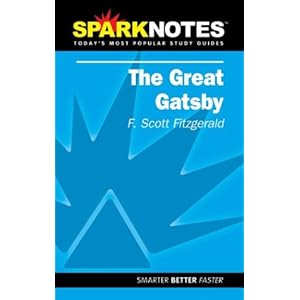Nick Carraway is not a reliable narrator because:
1. He cannot give an accurate account of what has happened between Gatsby and Daisy before he met them. To make up for his lack of information, he turns to other sources such as Jordan Baker and even Gatsby himself. At various points in the novel, Nick's conversations with other characters serve to inform the reader about events that took place before Nick's involvement in the story.
In Chapter 4, Nick listens to Jordan Baker describe the history of the romance between Jay Gatsby and Daisy. There is a disadvantage to hearing this story through Jordan's voice: she is not a very honest character. As a matter of fact, she is “incurably dishonest” according to Nick. Is Jordan a reliable source for this information? One can't be sure, as Nick merely states what has been told without knowing whether or not it is the truth.
2. His feelings towards Jay Gatsby change throughout the novel. He is first interested in his neighbour because of the mysterious atmosphere he receives. Then, he disapproves of Gatsby as Gatsby’s true character is revealed. By the end of the novel, Nick is fascinated with him. Nick's opinion of Gatsby may colour his narration and therefore distort the reader's view of him. Yet one cannot be sure whether this distorted view leads him or her to view Gatsby as better or as worse than he really is.
3. He is too deeply involved in events and relationships. Therefore he is biased; he is drawn to be more sympathetic towards Gatsby, and negative and sarcastic towards Tom Buchanan because of Tom’s oppressive attitude towards him. Nick’s positive attitude towards Gatsby is well illustrated by this quote: “They’re a rotten crowd...You’re worth the whole damn bunch put together.” Here, Nick compliments Gatsby and places him over the normal crowd. On the other hand, he is not very approving or understanding of Tom Buchanan. He describes him of conveying an “impression of fractiousness”. Nick’s contrasting views towards two main characters may have influenced the way he describes the events.
4. He is not always rational and objective, since he is a human. Moreover, Nick loses his senses when he becomes drunk at Tom and Myrtle’s party. The account that he gives during this time, which is most of Chapter 3, may be extremely inaccurate because of his drunkenness.
5. Nick himself is going through an internal conflict. How can he, then, give an accurate, unbiased account of what is going on in other people’s lives? We can see that he is struggling between two contrasting lifestyles—the pleasure-oriented, fast-paced life of New York and the conventional life of his home where morality is still valued—which is symbolized through his relationship with Jordan Baker. Although not expressed, it is possible that he is concerned with his own problems so that he cannot afford to think through the events and other people.
6. He does indeed judge people despite his statement that he is "inclined to reserve judgments". Nick is a smug, self-righteous man who says “I am one of the few honest people that I have ever known”. Many of the descriptions he gives of people and events may be based on his prejudices and judgments.
Nick Carraway is a Reliable Narrator because:
1. He is in the perfect position for narrating the novel. He is the next-door neighbour of Gatsby and a second cousin to Daisy. He also met Tom Buchanan at his college. Nick is the character who links everyone in place and can offer an eyewitness account of most of the events that happen to the three main characters. Therefore, he serves well as a reliable, objective narrator.
2. The un-judgemental nature he has obtained from his father is another factor that makes him an impartial narrator. Nick is tolerant and a good listener, so the description he gives of each event and character is highly analytical and less biased than other people may be.
3. He is not the only one talking. If he were the only one talking, some might suspect the events to be made up by Nick himself. However, there are other people who tell Nick about the past and their emotions—Jordan and Gatsby. Therefore, Nick’s comment about how Gatsby feels toward Daisy is not entirely his imagination.
4. He is usually the one who observes, not the one that takes the initiative. Nick is rather passive and follows the flow, rather than begin something. Because of this attitude, the story he tells is not self-centred and based on careful observation, without the attempt to justify himself for what he has done.
5. He tells the readers some rumours concerning Gatsby without expressing a strong opinion on them. Nick simply repeats what people say about the mysterious nouveau-riche neighbour now settled in West Egg. By doing so, he provides the readers with different views of Gatsby. He is being fairly objective.
6. This novel is a flashback from Nick's memory written at least two years after Gatsby’s death, as he clearly states at the beginning of Chapter 9. He has the privilege of hindsight at this point, and most of his emotions and bias about the characters may have died away with the time. Therefore, we can say he is writing this from a neutral viewpoint.
